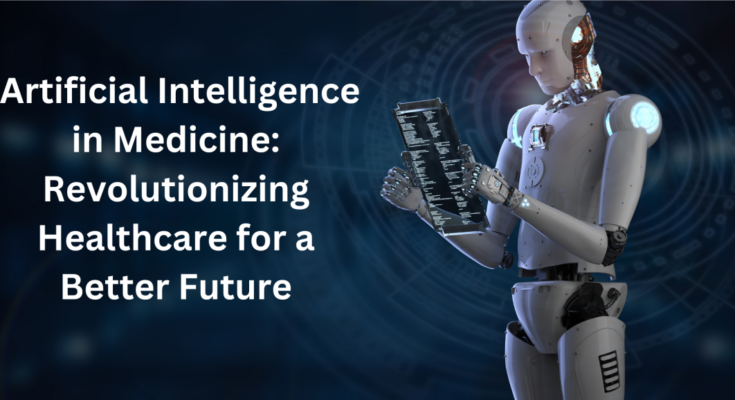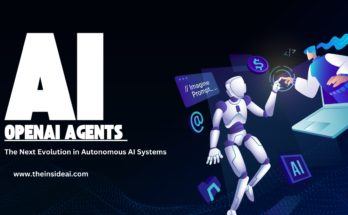Artificial intelligence (AI) has experienced explosive growth in the field of medicine. Its technology now plays a crucial role in diagnostics, personalized treatment, medical research, and patient care. The healthcare sector, which has historically been characterized by complexity and massive data requirements, is transforming thanks to AI’s ability to analyze large datasets, identify patterns, and make predictive assessments. In this article, we will delve into the various applications of AI in medicine, its main advantages, current limitations, and potential future developments.
The Need for AI in Medicine
Modern medicine generates overwhelming data—from electronic health records (EHRs) and genomic sequences to imaging scans and clinical trials. For clinicians, accessing and analyzing this data to make informed decisions has traditionally been a time-consuming, often impossible task. AI offers a solution by using machine learning algorithms and deep learning models to rapidly process this information, uncover hidden insights, and make evidence-based decisions.
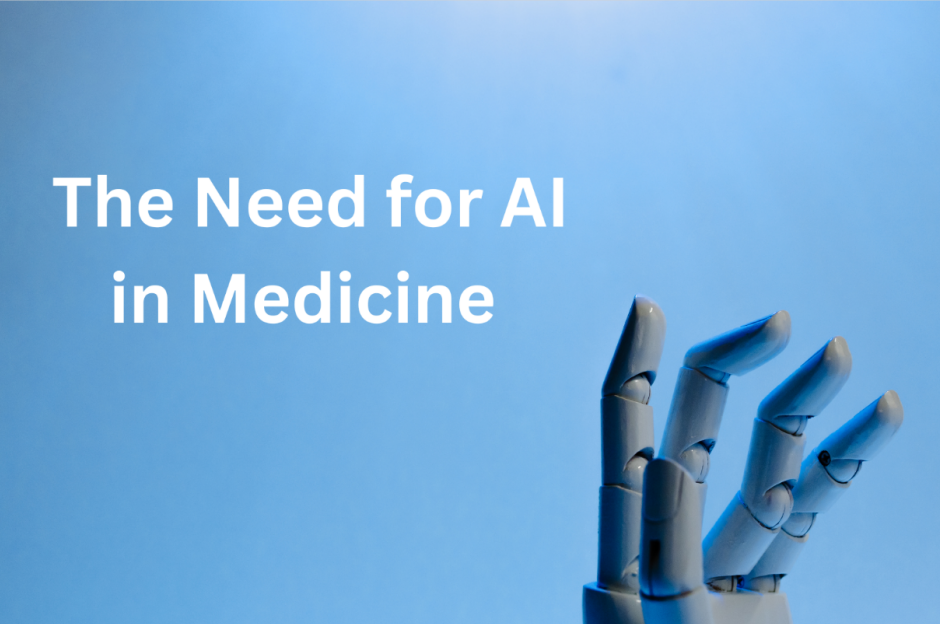
Key Areas of AI Application in Medicine
AI applications in medicine can be categorized into several main areas, each of which demonstrates its ability to revolutionize healthcare.
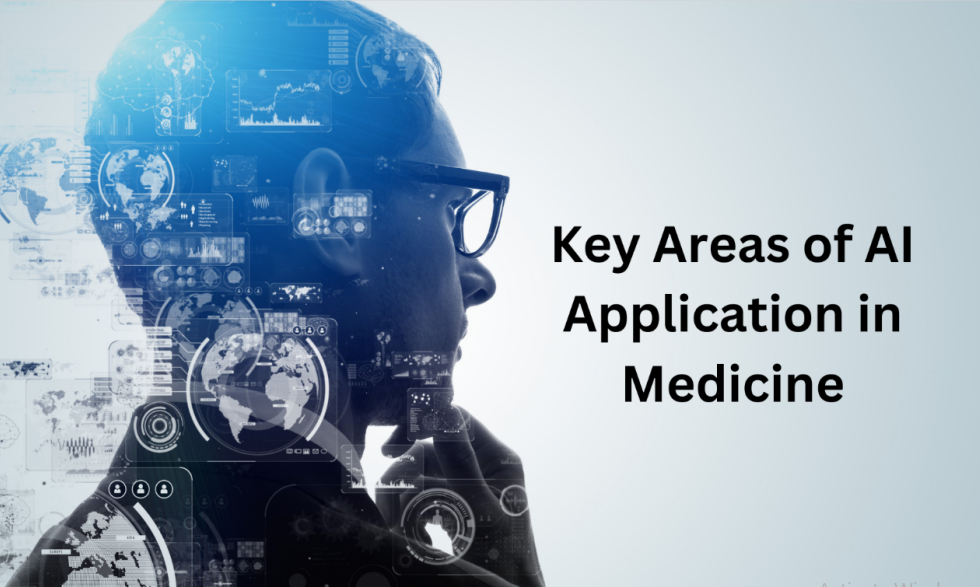
1. Medical Imaging and Diagnostics
Medical imaging has become one of the most advanced areas of AI application. Machine learning models, specifically convolutional neural networks (CNNs), are adept at analyzing medical images like X-rays, MRIs, and CT scans to identify abnormalities, tumors, or signs of disease. Some prominent examples include:
Breast Cancer Detection: AI algorithms have been shown to detect early stage breast cancer with a higher accuracy than human radiologists. Google Health’s AI-based mammogram analysis, for example, has demonstrated a reduction in both false positives and false negatives.
Lung Cancer and COVID-19 Detection: AI models have been trained to spot early signs of lung cancer and even detect COVID-19 pneumonia from chest scans, enabling quicker diagnosis and timely intervention.
2. Drug Discovery and Development
Traditional drug discovery is time intensive and costly, often taking years and billions of dollars before reaching the market. AI streamlines this process by analyzing chemical compounds, molecular structures, and disease mechanisms to identify promising drug candidates in a fraction of the time. AI-driven platforms like Atomwise and BenevolentAI use machine learning to predict how different compounds will interact with disease markers, accelerating the drug discovery timeline and allowing researchers to focus on the most promising leads.
3. Personalized Medicine
AI is a game-changer for personalized medicine, a healthcare approach that tailors treatments to individual patients based on their genetic makeup, lifestyle, and environment. Machine learning algorithms can analyze genomic data to identify genetic predispositions to certain diseases and recommend treatments tailored to each patient’s unique profile.
For Example:
Oncology: AI models analyze genomic sequences to predict the efficacy of specific cancer therapies, enabling oncologists to devise treatments best suited to an individual patient’s tumor profile.
Pharmacogenomics: AI aids in predicting a patient’s response to specific drugs, helping to avoid adverse drug reactions and optimize dosing for maximum efficacy.
4. Robotic Surgery
Robotic assisted surgery, a highly sophisticated AI application, has increased precision in complex surgeries. Systems like the da Vinci Surgical System combine robotics with AI to assist surgeons in minimally invasive procedures, reducing complications and improving recovery times. AI-enabled robotics provides high precision, dexterity, and control beyond the capabilities of the human hand, particularly in procedures involving delicate areas such as the brain or heart.
5. Predictive Analytics for Patient Outcomes
AI is also used for predictive analytics, which analyzes patient data to predict future health risks or outcomes. Predictive models use historical data to forecast patient deterioration, hospital readmission likelihood, or even mortality rates. Hospitals are leveraging predictive analytics to:
Identify AtRisk Patients: Machine learning models identify patients at high risk of chronic conditions like diabetes, cardiovascular disease, or kidney failure, prompting preventive measures.
Improve Patient Management: By predicting emergency cases, hospitals can better manage resources, ensuring the right personnel and equipment are available when needed.
How AI Works in Medical Applications
AI in medicine operates through machine learning, neural networks, and big data analytics. Here’s a closer look at the main steps involved in the process:
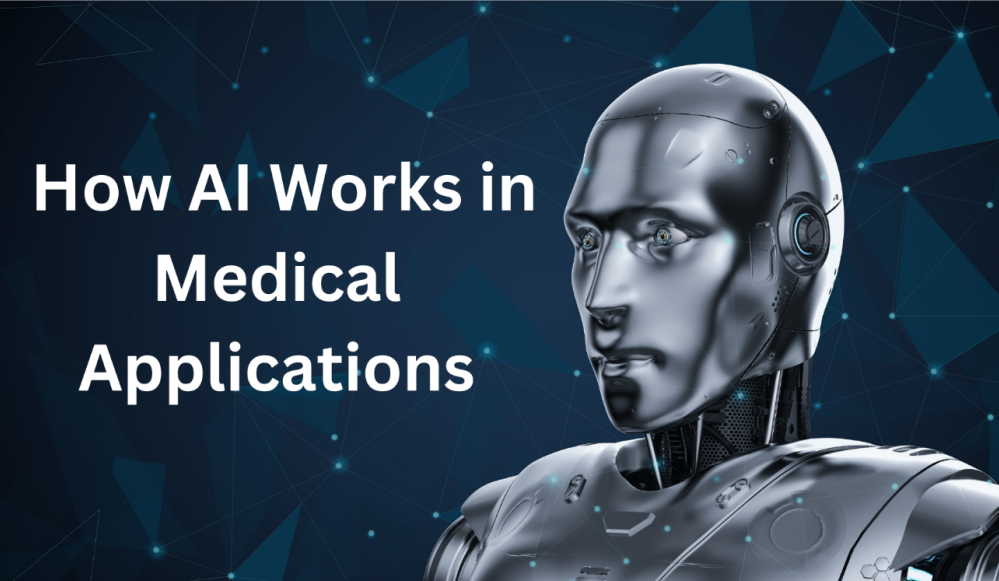
1. Data Collection and Preprocessing: AI systems require large datasets to train effectively. This data can include patient records, imaging data, genetic sequences, or treatment outcomes. To ensure high accuracy, data is preprocessed—cleaned, standardized, and categorized.
2. Model Training: AI models are trained on historical data to recognize patterns. For instance, in medical imaging, convolutional neural networks are fed thousands of labeled images to learn the features of conditions like tumors or fractures.
3. Testing and Validation: After training, the model undergoes rigorous testing and validation on new data. If the model performs well, it can be deployed in a real-world setting.
4. Implementation and Monitoring: Once in clinical use, AI models are continually monitored and refined to improve their performance and adapt to new information, such as evolving medical standards or newly identified diseases.
Ethical and Practical Challenges of AI in Medicine
While AI holds promise for advancing healthcare, it also brings certain ethical and practical challenges.
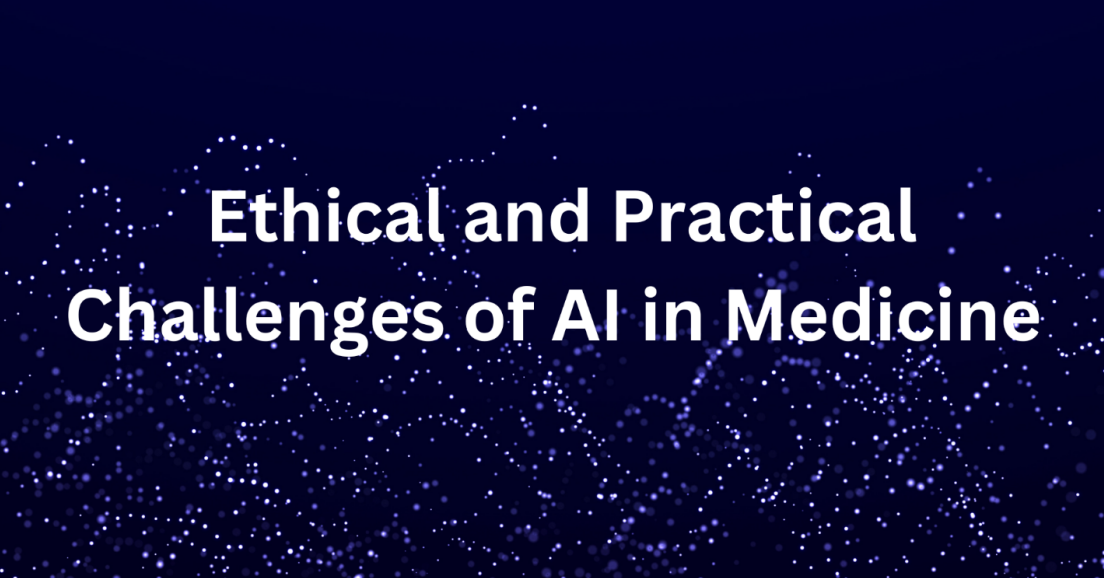
1. Data Privacy Concerns
Medical data is highly sensitive, and the increased use of AI necessitates stringent privacy protocols. AI algorithms rely on massive datasets, which raises concerns about how patient data is stored, shared, and used. Compliance with regulations like HIPAA (Health Insurance Portability and Accountability Act) in the US and GDPR in Europe is essential for protecting patient privacy.
2. Bias and Fairness in AI Models
AI models can inadvertently reflect biases present in training data, leading to biased treatment recommendations or misdiagnoses, particularly for underrepresented groups. Ensuring fairness in AI-driven healthcare applications requires balanced datasets and careful model validation across diverse patient populations.
3. Transparency and Interpretability
Medical professionals and patients alike require transparency in AI-generated decisions, especially when it comes to diagnostics or treatment recommendations. Blackbox models—AI systems where the decision-making process is opaque—are often met with skepticism. Researchers are working on explainable AI (XAI) techniques that make AI decisions interpretable, providing insights into how and why specific recommendations are made.
4. Reliability and Accountability
Mistakes in medical AI applications can have serious consequences. Determining accountability when AI makes an error is challenging, raising questions about who—whether the software developer, the hospital, or the practitioner—is responsible in such scenarios. Robust testing, validation, and regulatory oversight are essential for minimizing risks.
The Impact of AI in Medicine
The integration of AI in medicine has already led to significant improvements in healthcare delivery:
Faster Diagnoses: AI models can analyze imaging scans and diagnostic tests much faster than humans, allowing for quicker and often more accurate diagnoses.
Enhanced Precision in Treatment: With personalized medicine, treatments are more effective, resulting in fewer side effects and improved patient outcomes.

Cost Reduction: Automating processes like diagnostics and drug discovery can reduce healthcare costs, making quality care accessible to a broader population.
Increased Accessibility: AI-powered telemedicine and mobile health apps make healthcare services more accessible, especially in remote areas where specialized care may not be available.
The Future of AI in Medicine
The future of AI in medicine holds exciting possibilities. We’re on the brink of seeing AI systems that can predict diseases even before symptoms appear, further refine personalized medicine, and offer AI-driven robotic assistance in nearly every branch of surgery. With advancements in natural language processing, AI will be able to interpret physician notes and medical literature, further integrating it into daily medical practice.
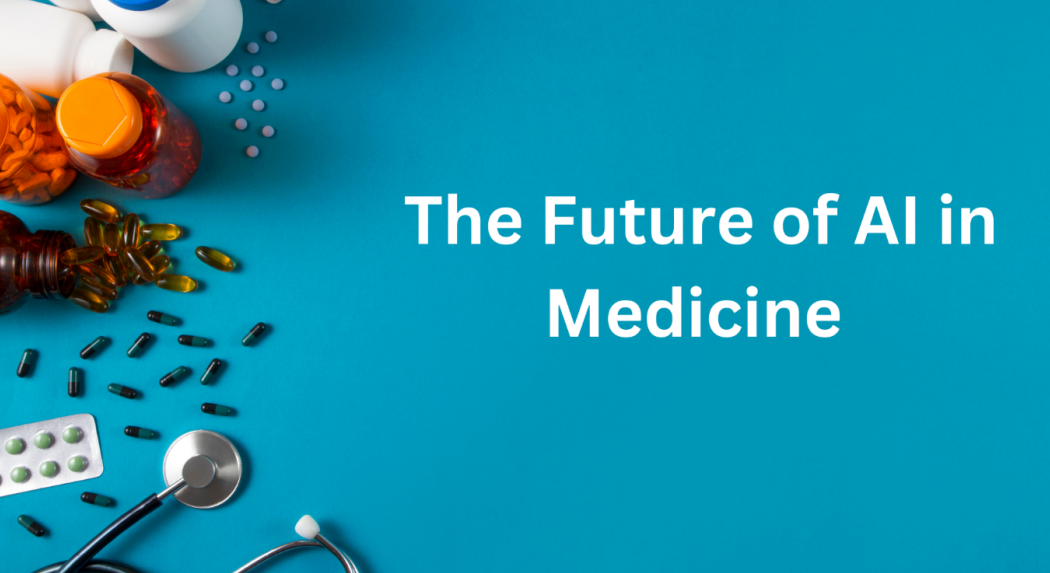
Federated learning, where AI models are trained across decentralized devices without sharing patient data—could enhance privacy in data-sensitive applications. Additionally, AI will play a critical role in remote health monitoring and preventive care, allowing physicians to monitor patients in real-time and intervene proactively.
Conclusion

The application of artificial intelligence in medicine is creating a paradigm shift in healthcare, enhancing diagnostic accuracy, personalizing treatment, streamlining drug discovery, and ultimately improving patient outcomes. However, ethical challenges, data privacy concerns, and the need for transparency must be addressed to fully realize AI’s potential in medicine. As AI continues to evolve, its integration into the medical field holds the promise of a more efficient, accurate, and accessible healthcare system. The future of AI in medicine may very well redefine the boundaries of what’s possible, heralding a new era of innovation that benefits healthcare professionals and patients alike.
